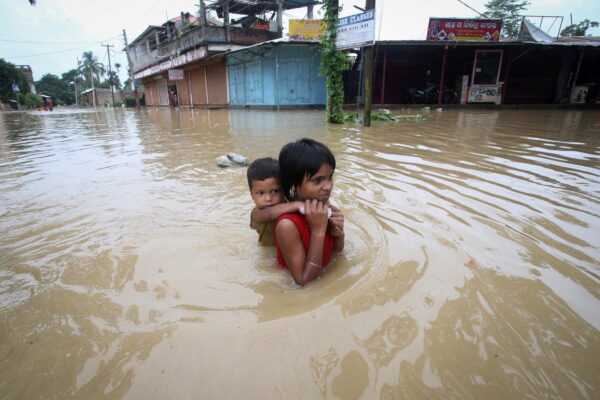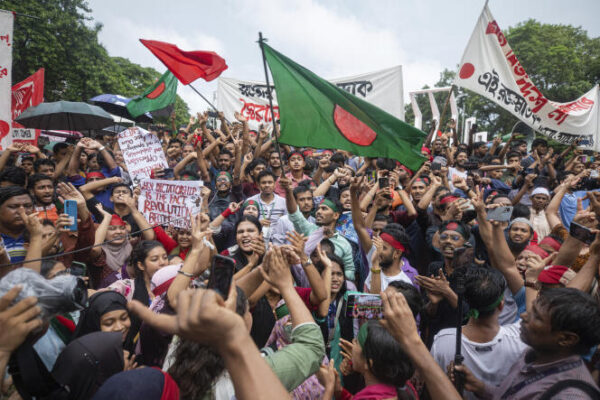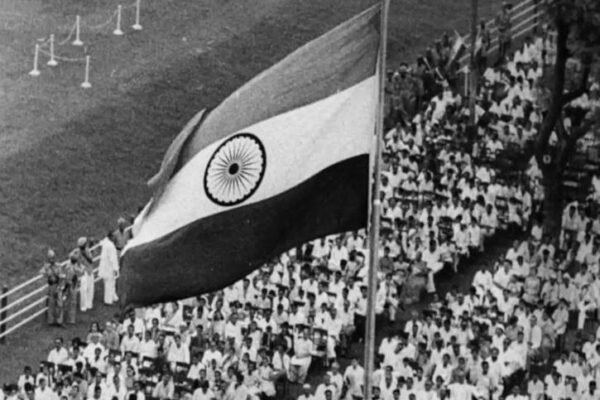“I was working in a factory in Aligarh, where after a while maybe the owner realised that I am not Indian. He called me and asked for my documents. I showed him the Refugee Card, he said this is not valid and he fired me.”
“I was working in a factory in Aligarh, where after a while maybe the owner realised that I am not Indian. He called me and asked for my documents. I showed him the Refugee Card, he said this is not valid and he fired me.”
As more and more countries are moving towards digital identity systems to determine the legal status of people, members of the persecuted Rohingya Muslim ethnic group are denied adequate protection as refugees and stateless persons in neighbouring countries like India and Bangladesh, according to a new report published by the Institute on Statelessness and Inclusion, in association with the UN Special Rapporteur Tendayi Achiume.
Rohingya Muslims are being left out of the civil documentation procedures in these countries in order to deny them legal status and thus avoid state responsibility, says the 32-page report titled “Locked In and Locked Out: The impact of Digital Identity Systems on Rohingya Populations”.
“This contextualizes and complements the recent UN report ‘Racial discrimination and emerging digital technologies’ from a South Asian perspective, particularly looking at countries hosting Rohingyas,” Anubhav Dutt Tiwari, one of the experts who has authored the report, told The Muslim Vibe. Tiwari is a PhD Candidate at the Faculty of Law, Monash University (Australia). “Most often these technologies are projected as emancipatory but together with ID documents, they also hold repressive and persecutory effects”, he explained.
Both India and Bangladesh have rolled out digital ID systems even as they are still not signatories to the United Nations Conventions on Refugees. India’s biometric digital identity system called Aadhar grants a unique 12 digit ID to residents in India based on their biometric data.
According to the report, the tech-based citizenship registries may enable marginalised citizens to have better access to services but for stateless people like the Rohingya Muslim refugees, digitised systems can in fact “entrench exclusions”.
The discrimination and repression against Rohingya Muslims by successive Myanmar governments date back to the 80s, but the crises peaked in 2017 when the military launched a violent offensive against the community, forcing hundreds of thousands to flee to neighbouring countries, primarily Bangladesh. Some also arrived in India.
The UNHRC has documented around 18,000 Rohingya refugees in India, but many more are unregistered due to the absence of a systematic recording system at Indian borders. They have been living in camps mainly in three cities — Jammu, New Delhi, and Hyderabad.
In August 2017, Kiran Rijiju, a minister in Modi’s cabinet, had said that Rohingya Muslims in India are “all illegal immigrants…they have no basis to live here. Anybody who is an illegal migrant will be deported.”
Such a policy has forced the Rohingya refugees to keep “to keep a low profile” for safety and fear of deportation.
India’s response to Rohingya Muslims worryingly mirrors Myanmar’s response, where they have been labeled a security threat – but the approach is in fact rooted in xenophobia.
In December 2019 the Indian government, under Prime Minister Narendra Modi, passed a law called the Citizenship (Amendment) Act that offers speedy citizenship to members of religious minorities in neighbouring countries but excludes Muslims and those from Myanmar. Critics have described the law as discriminatory towards Muslims, violating the secular ethos of the constitution. The move sparked widespread protests in India with Muslim men and women on streets for months demanding revocation of the law.
Moreover, India does not have a law that offers protection to such people; it is an offence for any foreigner to be in India without a valid passport and visa. Refugees facing persecution and lacking ‘valid documents’ are provided Long Term Visas (LTVs), a legacy of the partition of the Indian sub-continent, enabling them to live in India.
In 2012 India began giving LTVs to the Rohingya, which offered some level of protection. But from 2017 the government stopped renewing LTVs or providing new ones. Then in 2018, the Ministry of Home Affairs (MHA) made a change in the policy removing refugee cards as a valid document to register for a digital identity system under Aadhar.
The report found how the absence of digital identity is jeopardising Rohingya lives in India. They have limited employment opportunities, and a lack of access to essential services like education, health, and banking. They are also vulnerable to abuse in workplaces and limited options to get legal help and are more vulnerable to police harassment, the report notes.
A Rohingya refugee who lives in New Delhi was quoted as having said:
I was working in a factory in Aligarh, where after a while maybe the owner realised that I am not Indian. He called me and asked for my documents. I showed him the Refugee Card, he said this is not valid and he fired me.”
A young Rohingya Muslim in Hyderabad said he got selected into a big football club, but due to a lack of an Aadhar card, he could not join them. “When I replied that I only have a refugee card – they still tried by reaching out to the Indian Football Federation, which eventually rejected the request”, he explained.
The report recommends that the Indian government must provide LTVs to Rohingya refugees and take a humane, inclusive, and progressive approach for refugee recognition and protection.
Ali Johar, a Rohingya activist based in the Indian capital New Delhi, explains:
If you are a stateless person and have no proof to prove yourself a foreigner in countries like India then you face more difficulties in every step of life from birth to schools to jobs. In India, we can’t [even] buy a SIM card with our refugee cards because the card is not recognised by the government.”
Unlike India, Bangladesh allowed entry of Rohingya people fleeing militarised genocidal violence in 2017. The country currently hosts nearly one million refugees. Most of them live in the world’s largest refugee camp close to Cox’s Bazar. But like India, the country does not have a systematic mechanism for refugees nor is it a signatory to the UN Refugee Convention.
Bangladesh describes Rohingya Muslims as “Forcibly Displaced Myanmar Nationals” instead of refugees. This blocks the path to naturalisation and a chance to regularise their legal status, putting them at perpetual risk of deportation to Myanmar or forcibly moved to remote islands.
In 2018, after the continued influx of Rohingya refugees, the UNHCR and the Bangladeshi government began issuing new ID cards (“Smart Cards”) based on biometric data collected from refugees.
While the UNHRC says Smart Cards were provided for the purpose of “protection and assistance”, the report cites officials involved in implementing ID systems saying these cards are being used for the purposes of “separating” refugees from Bangladeshi populations.
The report raises the concern that the data may be passed to Myanmar or could be used to enforce future repatriation if tied to aid delivery.
The report also found that Rohingya refugees had not been consulted in the design or use of the ID scheme, raising concerns of transparency and erasure of their identity as the Rohingya refugee groups objected to the absence of terms such as “refugee” and “Rohingya” on the IDs.
The report suggests a “cautious and rights-based approach” and calls for better transparency on data privacy from the Bangladesh government. “Under no circumstances should refugees’ biographic or biometric data be shared with the Myanmar government without individual consent,” the report urges.
Drawing from the experience in both Bangladesh and India, the report highlights the importance of ensuring that refugees participate in consultations on the design and implementation of digitised personal identification systems, to ensure their rights remain fully protected.





